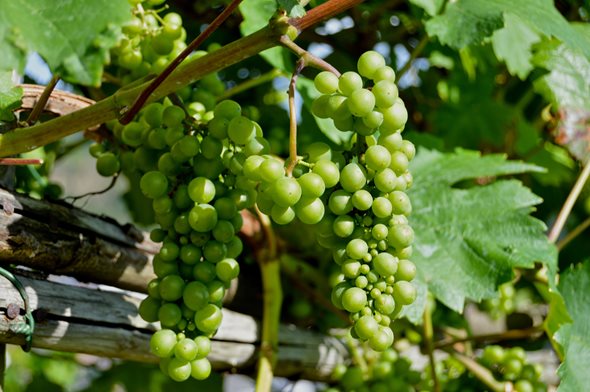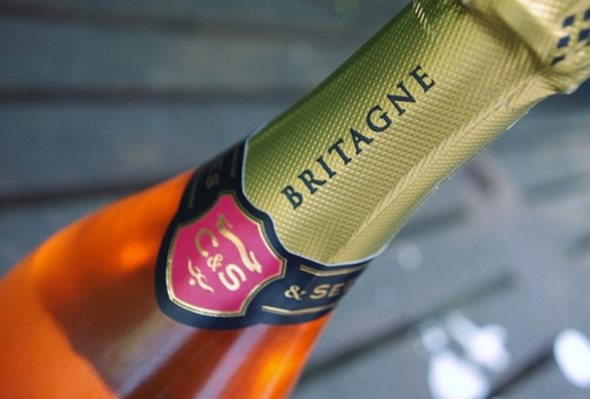


Why English Wine Needs A Brand
English Sparkling Wine - The Wine That Dare Not Speak Its Name

What was invented by an Englishman in the 17th century, re-defined by the French in the 19th century, produced in Britain for the first time by an American couple in the 20th century - which in the 21st century went on to win a prestigious prize as the best of its kind in the world? Bottle-fermented sparkling wine.
Organise these ‘brands’ in order of quality/price: Prosecco, Cava, Champagne. Not difficult, was it? Now do it including English sparkling wine. Tricky?
Where does English wine ‘sit’? What categories exist within it? Pull are planning to take the initiative to find out how Brits view English wine. We will report our findings here when we have run our survey. In the meantime, our working hypothesis is that most people already find the world of wine difficult and complicated enough. Unless they are pretty knowledgeable about their wine, consumers navigate this world with some simple signposts that can nevertheless be handy: “I do like a good Rioja”, “I like Australian Chardonnays”, “I love Champagne but we mostly drink Prosecco.” Growers of quality English wine owe it to themselves to become known for something. If they don’t, their progress will be measured not in decades, but centuries.

So how do we Brits navigate our own wine ‘terroirs’ at present? I think I have never heard anything in reference to English wine that departs from the “It’s disgusting” of my youth (this was often from people who confused it with ‘British wine’ that arrived in tankers from Spain and was ‘blended’ in Britain), or the more contemporary “Some of it’s quite good today, isn’t it?”.
That’s because we have no signposts, no obvious local varietals (the only wine varieties that can do well in our climate are ones used in German wine-making like Müller-Thurgau and the holy trinity of Pinot Noir, Chardonnay and Pinot Meunier – which we will come to shortly). There are no classical wine producing regions like Bordeaux, Burgundy, The Loire, Rhine, Alsace, Napa Valley.

If ever there was a case that a great product can thrive without marketing (there, I’ve said it – but English wine is a case in point) it is the English wine industry. English wine is growing and thriving. Production has doubled since 2011, from 3m bottles to a forecast 6m in 2017 (having said that, production levels vary widely with our unpredictable weather. 2012 production was a mere 1m bottles, showing how precarious a business it can be.) But although the rate of growth may come as a surprise to many, most people would be even more surprised to learn that British sparkling wine has been a prize winner. The breakthrough was in 2009, when the Italian Bollicine del Mondo sparkling wine competition selected Nyetimber Classic Cuvée 2009 from West Sussex as the best sparkling wine in the world.
In my view, the most marketable products of English wine production are the bottle-fermented sparkling wines produced using the methode champenoise and created from a blend of the Pinot Noir, Chardonnay and Pinot Meunie - otherwise known as Champagne. Now, you could have a pretty long debate about to what extent the English could come to challenge the great Champagne houses of France, but no true viniculturist would argue with the fact that the cooler climate of southern England (because it has an even more knife-edge climate than the Champagne region) is capable of producing wines that can equal or perhaps even surpass the best from Champagne – as the Nyetimber did in 2009.
But here’s the problem: It can’t be called Champagne. Even worse, there is no name for it. There have been various attempts and competitions for inventing names for this type of English wine. One of the larger and more prestigious English Sparkling wine-makers – Ridgeview – proposed the name Merrett. Merrett was the Englishman who invented bottle-fermented sparkling wine – you’ve heard of Merrett? No? Just to make sure you wouldn’t – or that nobody could steal a march with it, Ridgeview trademarked the name. The other candidate was ‘Britagne’. Yes? No.

So the idea is this. Take these methode champenoise wines and call them something. To qualify to use the name your wine must be produced with the defined grapes and method, and made in England. The product has great provenance and a narrative. What it needs is a clear promise (even if that is only ‘as good as Champagne, but British’) and a name that will gain traction and shed any ridicule.
Where does Pull come in to all this? Well, we believe we can help – although this may be either naïve or hopelessly optimistic. The problem is well-recognised within the industry, and has been discussed at meetings of the trade body, English Wine Producers. There are many vested interests, and a lot of producers who would be left out if the name was reserved for methode champenoise producers only. As one vineyard owner warned us: “They will never agree on something. It will be like herding cats. Remember, they are all trying to promote their own brand names at the same time.”
So we’re wading in. This doesn’t mean rushing in to create a name. This problem needs to addressed step by step. We’re going to start by seeing what people think. What do wine-buying Brits think English wine consists of? What varieties do they know of? What brands do they know of? What do they think is closest to Champagne? Given the choice between two wines they knew to be indistinguishable and the same price, with one being English and the other French, which would they buy? How would they feel about serving English wine to guests? Would they feel differently about what they were consuming and serving if the product was known to be on a par with good Champagne?
Update August 2018
We have now conducted our survey to find out whether or not people have heard of English Sparkling Wine and where they think it sits in the category. Find out what we discovered here.Posted 13 June 2017 by Chris Bullick